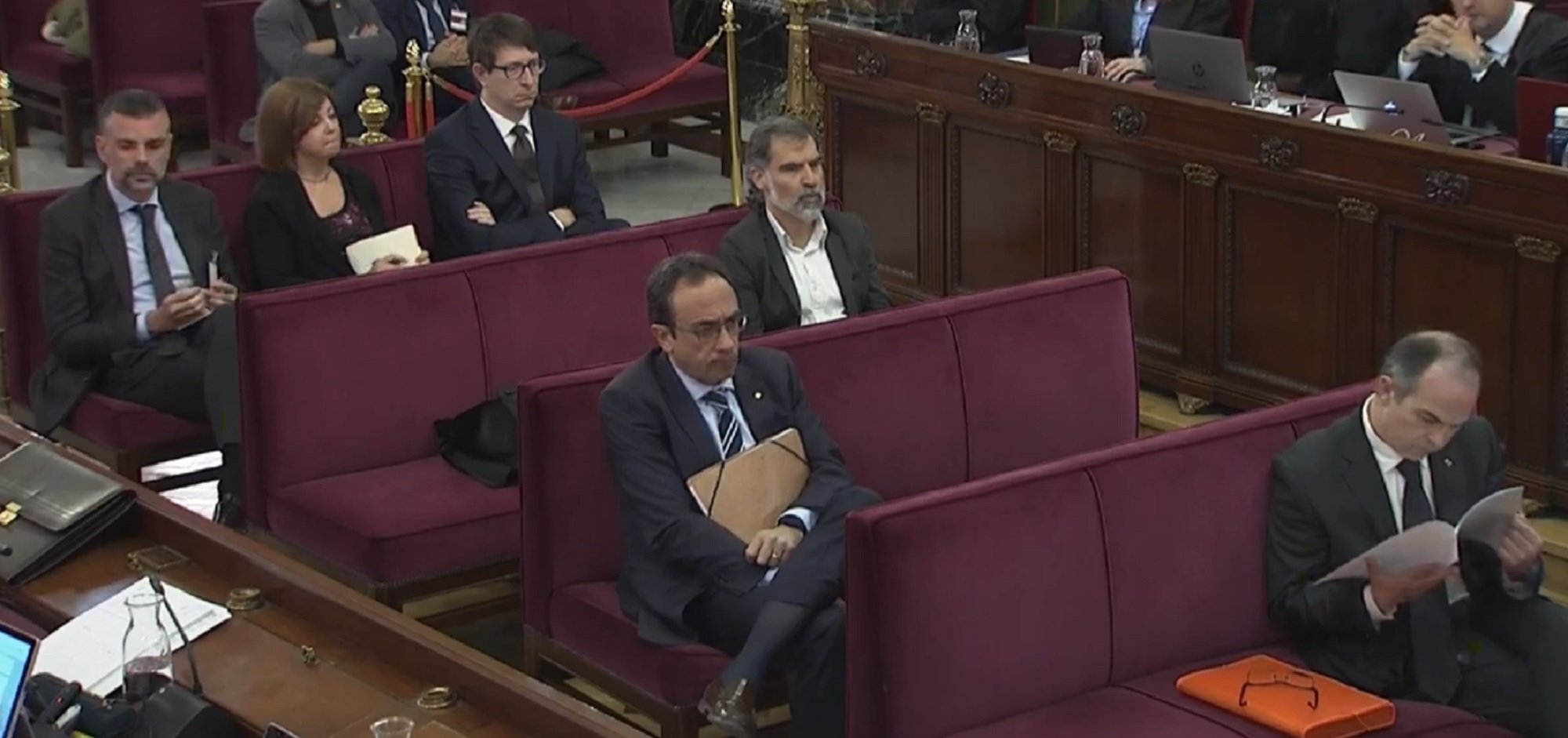"The occupation of the polling stations was the first step to carry out the referendum. There were music parties, pyjama parties, nighttime hot chocolate parties". That was how everything started, according to the head of the information brigade of the high command of the Spanish National Police in Catalonia, Manuel Quintela, the first witness to appear before the Catalan independence trial today.
When asked by Joaquim Forn's lawyer, Xavier Melero, he admitted they only drafted a report on these activities, instead of closing the centres. "We were in a climate of suspicion which was growing", he said by way of justification, explaining that this situation led to the decision on the day of the referendum itself to act over the heads of the Mossos d'Esquadra, Catalonia's own police force. He described the situation in the days running up to the referendum as a "pre-revolutionary atmosphere".
He discussed the police's entries into polling stations to confiscate referendum material and the attacks he claims they received, including being "hit on the head with a ballot box". Asked by private prosecution Vox, he said this response to them wasn't widespread.
He also justified the use of rubber bullets, banned in Catalonia, which resulted in a man named Roger Español losing an eye: "They tried to knock them out. When they were exiting with the material they were pursued for metres and in this complicated departure they used the firing of rubber bullets and one caused injuries to a hostile demonstrator who, by the way, was in the front row and made five direct attacks against police agents". He added that it was the head of the police present who attended to the man who had a heart attack.
Another notable claim was that then education minister Clara Ponsatí, now in exile, "was directing the resistance to the police operation" at her polling station. He also accused the Mossos themselves of trying to hinder the police operation against the referendum at some locations: "We had the opposition of the Mossos, who blocked our work. A police officer with their arms crossed tried to stop the civil servants from entering [the polling station], shouting 'let them vote'".
"The objective was to delay our entry", he told the state lawyer, who was warned by presiding judge Manuel Marchena more than once about prompting responses. He justified his force's decision to take action based on the Mossos' "inaction and inefficiency".
"[Two officers at location] was absolutely insufficient and [...] the polling stations were opened like for a normal vote," he said. Quintela said there were 72 Spanish police officers injured that day and that Mossos sent 271 messages about the location of National Police units, decrying what he claimed was secret tracking of them. He said there were instructions to use "channel 21", which meant mobile phones.

